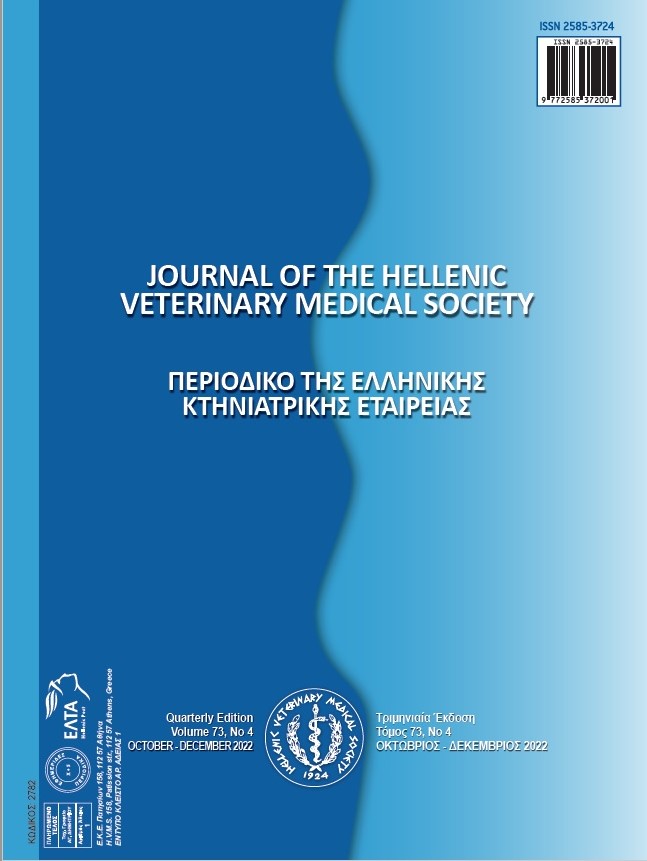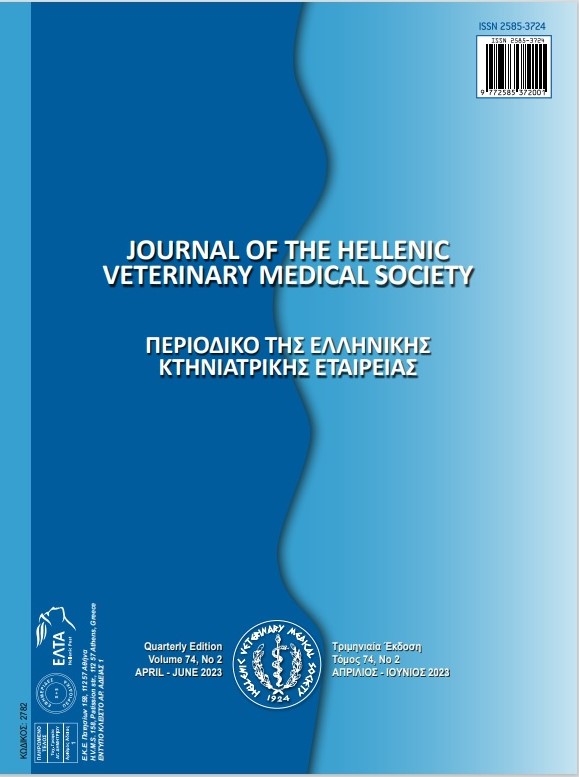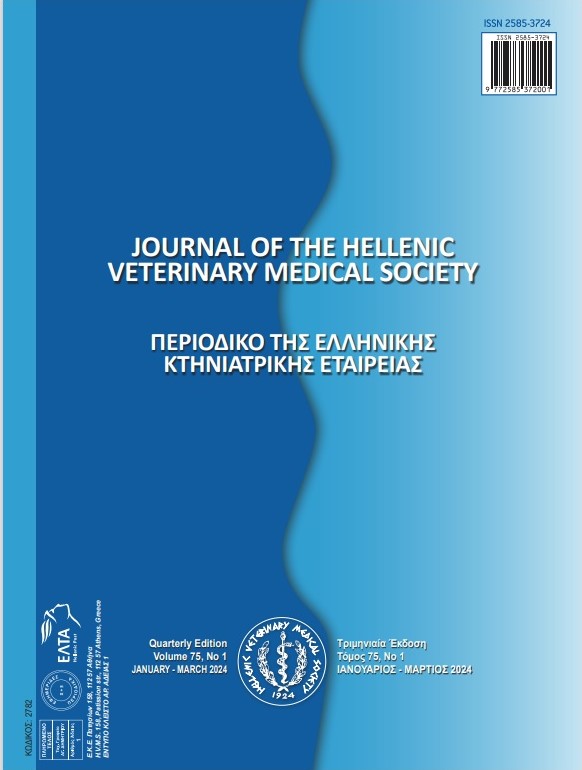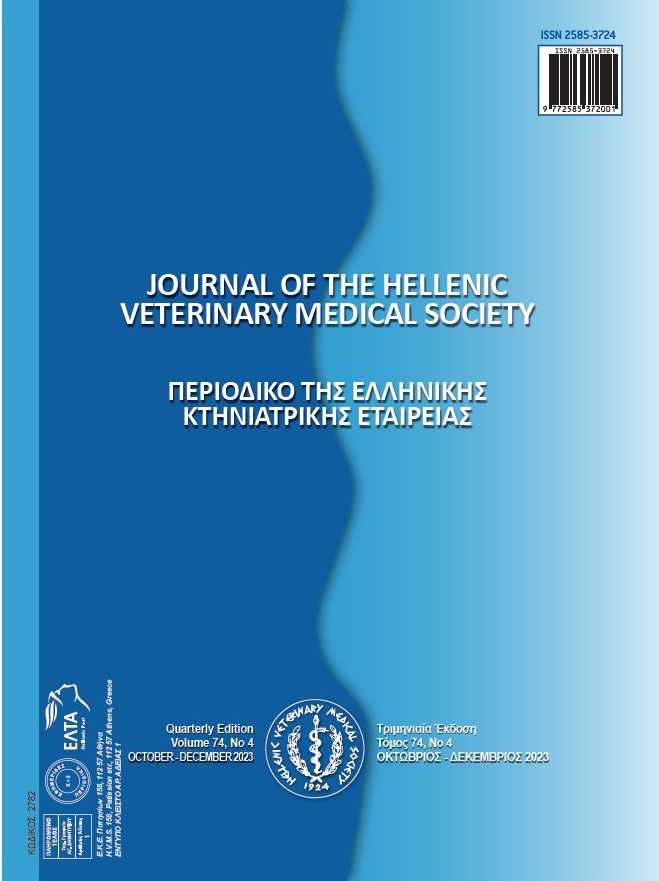The effect of reduced dose of PGF2α on certain reproductive parameters in awassi yearlings in anestrus synchronisation protocol following the end of the of the breeding season

Abstract
F2α (PGF2α; Gestavet Prost, d-cloprostenol, HIPRA®) injection in a routine synchronization protocol following the
end of the breeding period including intravaginal sponge (medroxyprogesterone acetate; Espanjovet, HIPRA®) and
eCG (Oviser 500, HIPRA®) on certain fertility parameters in ewes.Two hundred thirty-eight Awassi yearlings (aged
one year old) divided into two groups:116 ewes received a half dose (HSDP; 37.5 μg) of PGF2α and 122 ewes received
full dose (FSDP;75 μg).The pregnancy rates were 67.2% and 72.1% for HSDP and FSDP, respectively (P>0.05).
The lambing rates were 64.7% and 63.9% for HSDP and FSDP, respectively (P>0.05).The single lambing rate in
HSDP(94.7%) was higher (P<0.05) compared to that in FSDP (73.1%). The twin and multiple birth rates of FSDP
was higher (P<0.05) than HSDP. As a result, it was inferred that aHSDP could be used in Awassi yearlings without
experience of lamb care and in a herd in which single lambing was preferable. Moreover, due to the fact that it is more
affordable and not detrimentalto fertility, it was concluded that HSDPcan offer an advantage in large flocks and can be
used for manipulating fecundity ratesin yearlings.
Article Details
- How to Cite
-
Ozbilek, I., Ergun, Y., Gözer, A., Bahan, O., & Alasahan, S. (2023). The effect of reduced dose of PGF2α on certain reproductive parameters in awassi yearlings in anestrus synchronisation protocol following the end of the of the breeding season. Journal of the Hellenic Veterinary Medical Society, 73(4), 4757–4762. https://doi.org/10.12681/jhvms.27399
- Issue
- Vol. 73 No. 4 (2022)
- Section
- Research Articles

This work is licensed under a Creative Commons Attribution-NonCommercial 4.0 International License.
Authors who publish with this journal agree to the following terms:
· Authors retain copyright and grant the journal right of first publication with the work simultaneously licensed under a Creative Commons Attribution Non-Commercial License that allows others to share the work with an acknowledgement of the work's authorship and initial publication in this journal.
· Authors are able to enter into separate, additional contractual arrangements for the non-exclusive distribution of the journal's published version of the work (e.g. post it to an institutional repository or publish it in a book), with an acknowledgement of its initial publication in this journal.
· Authors are permitted and encouraged to post their work online (preferably in institutional repositories or on their website) prior to and during the submission process, as it can lead to productive exchanges, as well as earlier and greater citation of published work.





